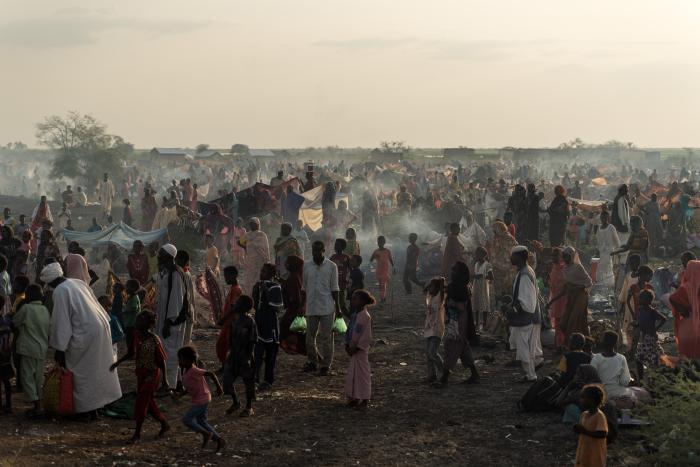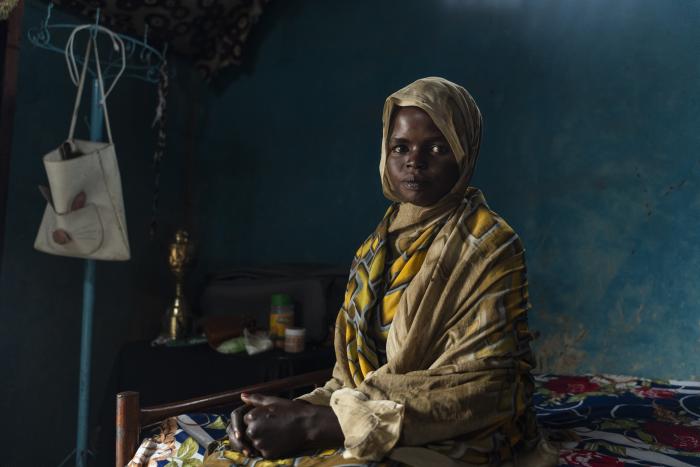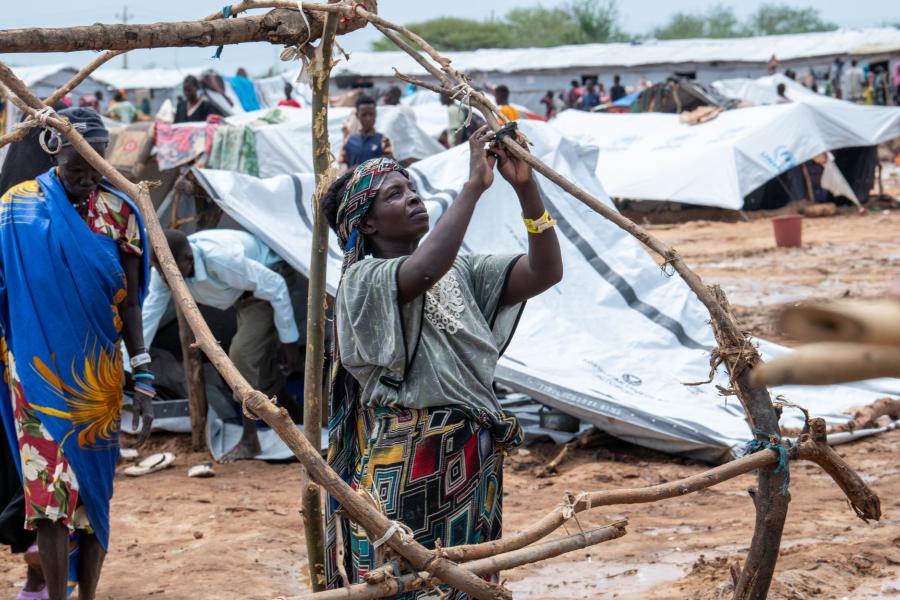2024 population planning figures
- Refugees and asylum-seekers in neighbouring countries : 3,080,674
-
New IDPs : 1,100,000**
-
Refugee returnees : 917,300
-
Host communities : 414,305
-
Stateless persons : 24,324
**Out of the total of 7.1 million estimated IDPs in Sudan at the end of 2023.
For the reported figures consult the dedicated page on UNHCR operational data portal.
Deadly conflict in Sudan has forced over 7.5 million people to flee their homes.
With no end to the violence in sight, people are desperately seeking safety and protection, both inside Sudan and in bordering countries such as Chad, South Sudan, Egypt, Ethiopia, and the Central African Republic.
2024 Situation overview
The conflict that broke out in Sudan in April 2023 had newly displaced nearly 6 million people within Sudan by October, and driven over 1.4 million people into five neighbouring countries – the Central African Republic (CAR), Chad, Egypt, Ethiopia, and South Sudan.
Sudan and its neighbours were already hosting large refugee and IDP populations prior to the new crisis. All six of the UNHCR country operations involved were already severely underfunded and the new emergency has created significant additional needs, affecting their ability to adequately respond to the enlarged population of forcibly displaced people.
Inside Sudan, the humanitarian situation remains dire due to ongoing fighting and shortages of food, water, and fuel, limited communications and electricity, and very high prices of essential items. Health care has been critically affected and there are severe shortages of medicines and vital supplies.
In 2024, the Sudan situation is not expected to improve as the war rages on and more displacement is anticipated. The situation of those displaced continues to be challenging and without increased funding support, operations will only be able to provide very basic life-saving services. Peace talks in Jeddah brokered by the United States, the Kingdom of Saudi Arabia, and the Intergovernmental Authority for Development (IGAD) - on behalf of the African Union (AU), were reconvened at the end of October.
The objectives of the talks include facilitating the delivery of humanitarian assistance in Sudan and ultimately a permanent cessation of hostilities. It is hoped that the resumption of talks that had stalled since July will advance prospects for a peaceful resolution of the conflict in Sudan.
In Sudan, UNHCR will continue to provide critical and life-saving assistance, including protection interventions, delivery of shelter and household items, clean water and sanitation services, health care, education support, and site management for refugees, IDPs and host communities, while continuing efforts to access and assist those in difficult to reach areas most affected by the conflict.

UNHCR will continue to coordinate and lead the inter-agency regional Refugee Response Plan (RRP) to build protection and resilience. UNHCR is carrying out registration, providing emergency shelter and core relief items, supporting host countries to ensure access to territory and asylum for all individuals in need of international protection, and relocating displaced people to safer sites in consultation with concerned governments and partners. There are concerted efforts to involve development partners, and all livelihoods and economic inclusion activities are focused on building people's resilience.
UNHCR is working with 64 inter-agency partners, including UN agencies, the Red Crescent and Red Cross movement, and national and international NGOs in the RRP response. All programming will be done through an age, gender and diversity lens.
The most urgent needs are water, food, shelter, health, cash assistance, core relief items and protection services. Additionally, as refugees continue to arrive, there is a need for new refugee camps and settlements, and the expansion of infrastructure and services in existing locations. In particular, the dire health situation among newly arriving refugees is concerning. Flexible funding is vital as the situation and the response continue to rapidly evolve and expand.

The priority remains to support local authorities with the registration of new arrivals and to identify individuals at heightened risk (unaccompanied children, individuals in a critical medical condition or with disabilities, survivors of gender-based violence and older persons). Efforts need to be expanded to ensure that mechanisms are established to mitigate and respond to gender-based violence, including life-saving services, and to ensure that support is available for survivors and for children at risk.
In addition to the humanitarian response, development-related investments are needed to support host communities with the inclusion of refugees in national services, and for the sustainable reintegration of returnees.
The RRP for 2024 has a strong focus on resilience and systems strengthening in all partner activities so that those fleeing Sudan are included in national systems, particularly in health and education, and able to undertake livelihood activities.
For the most recent stories, press releases and briefing notes, please visit the Emergency page on unhcr.org dedicated to Sudan.
